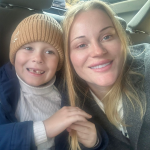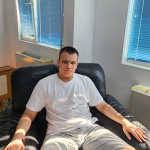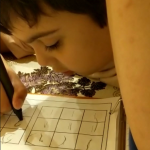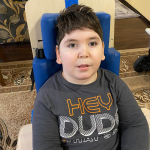Cannabis for Autistic Individuals
Cannabidiol (CBD) is one of many compounds found in the cannabis plant. More specifically, cannabis refers to a group of three plants known as Cannabis sativa, Cannabis indica, and Cannabis ruderalis. While all of these have psychoactive properties, they are primarily caused by a different compound—tetrahydrocannabinol (THC). CBD, on the other hand, does not produce such effects, and its proponents claim that it has numerous medical benefits.
CBD interacts with neuroreceptors in the endocannabinoid system, which helps regulate movement, mood, homeostasis, and the immune system by transmitting signals between cells. Some studies suggest that CBD may help alleviate anxiety, though its effects vary from person to person. When it comes to autistic individuals, different reactions to cannabis have been observed, including:
- Reduced stress
- Decreased physiological symptoms such as rapid heartbeat
- Improved symptoms of post-traumatic stress disorder (PTSD)
- Relief from insomnia
There is also evidence that CBD may help in treating epilepsy, alleviating pain, managing acne, and protecting against neurological disorders due to its antioxidant and anti-inflammatory properties.
Can CBD Help with Autism Symptoms?
This is a question that remains unanswered. However, analyzing the current information can provide some insight:
- Autism spectrum disorders (ASD) encompass conditions that can affect cognitive development, motor skills, social interactions, communication, and behavior.
- Children with ASD often experience co-occurring symptoms such as aggression, hyperactivity, and anxiety.
- CBD has been found to modulate nerve signals in areas of the brain responsible for anxiety, executive function, and behavior by blocking signals to key neuronal receptors.
- CBD significantly affects heightened brain activity in the right posterior cingulate cortex, which is believed to be involved in processing emotional information.
- No clinical trials have yet confirmed the effectiveness of CBD for autism treatment, making its safety uncertain in medical practice.
While CBD may indeed have beneficial effects, its impact on autism remains unproven. However, what has been scientifically validated is the effectiveness of stem cell therapy—currently recognized as the most promising approach for autism treatment.
Stem Cell Therapy: A Proven Solution
Stem cell therapy is a modern, science-based approach that involves transplanting stem cells, which have the unique ability to transform into any other type of cell. This allows them to identify damaged cells and replace them with healthy equivalents, helping normalize behavior and significantly reducing or even eliminating autism symptoms. The positive effects often become noticeable shortly after the procedure and tend to be long-term, or even permanent, enhancing the success of other therapeutic interventions.
Today, stem cell therapy is widely recognized as an effective, safe, and natural method for addressing autism and its associated challenges. In the future, it may become the primary medical strategy for treating the disorder. Leading medical institutions worldwide are already implementing this therapy, including the Mardaleishvili Medical Center. The center boasts extensive experience in successfully treating autism, employs highly qualified specialists, and is equipped with state-of-the-art medical technology.
Another advantage of the center is that treatment costs are more affordable compared to other countries with advanced healthcare systems. Additionally, the clinic provides comprehensive support for patients and their families, assisting with travel arrangements, accommodation, and other logistical concerns.
Stem Cell Therapy – A Proven and Safe Treatment!
Autism Treatment Center Videos
Autism treatment with own stem cells
Cord blood association congress
International Quality Crown
Autism Treatment Reviews
Autism treatment with own stem cells
The story of Alessandro (6 years old)
Autism Patient Testimonial - Stem Cell Treatment
Clients Testimonials

Feedback from Igor, David’s father (12 years old) Read More

Feedback from Olga, Fedya’s mother Read More

Feedback from Natalia, Radomir’s mother (15 years old) Read More

Feedback from Esther, Samuel’s mother (8 years old) Read More

Feedback from Abibe, Selim’s mother (7 years old) Read More












